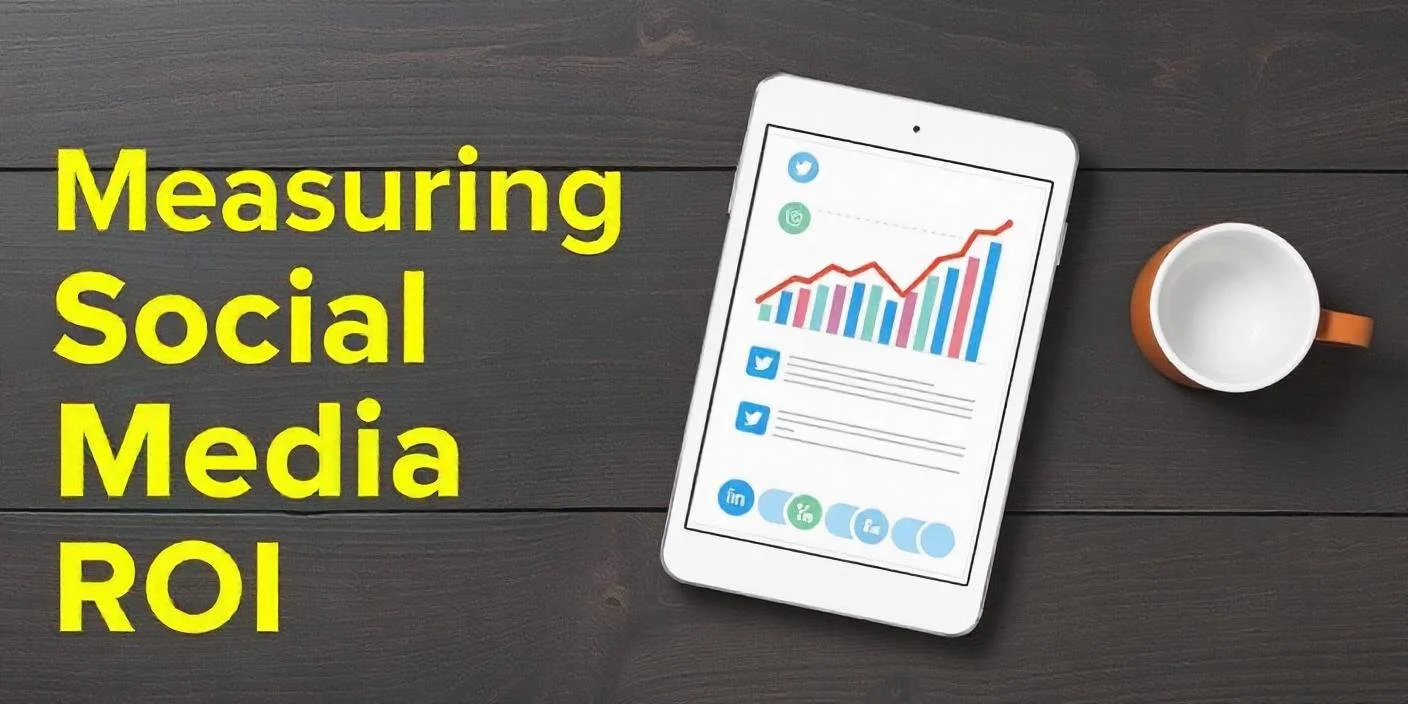Measuring Social Media ROI
Introduction
In today's digital landscape, social media platforms play a pivotal role in shaping consumer behavior and influencing brand perceptions. However, the traditional methods used to measure the ROI of social media campaigns often fall short in capturing the full spectrum of their impact on organizational goals. Marketers face challenges in quantifying intangible benefits such as brand awareness, customer loyalty, and community engagement, necessitating a paradigm shift towards more sophisticated ROI metrics.
Problem Statement
The primary challenge addressed by this research is the inadequacy of conventional ROI metrics in providing a comprehensive assessment of social media's contribution to business outcomes. Current metrics often focus on direct conversions and click-through rates, overlooking critical indicators of social influence and long-term brand equity. This gap underscores the need for new metrics that can effectively measure and communicate the holistic impact of social media investments.
Objective
This research aims to develop and validate a set of new metrics tailored to the complexities of contemporary digital marketing landscapes. Specifically, it seeks to identify KPIs that integrate qualitative and quantitative insights to offer a nuanced understanding of social media ROI. By enhancing measurement accuracy and relevance, these metrics aim to empower marketers with actionable data for optimizing resource allocation and strategic decision-making.
Significance
The significance of this study lies in its potential to reshape how organizations evaluate the ROI of social media campaigns. By introducing innovative metrics that encompass diverse dimensions of social media impact, this research enables marketers to demonstrate the value of their investments more comprehensively. Improved ROI measurement can lead to better-informed budget decisions, enhanced campaign effectiveness, and stronger alignment of marketing efforts with overarching business objectives.
Literature Review
The literature review critically examines existing research on Social Media ROI metrics, highlighting limitations in traditional approaches and identifying gaps in current methodologies. It explores recent advancements in attribution modeling, sentiment analysis, social listening tools, and AI-driven analytics, which propose more holistic approaches to ROI assessment. Key insights include the growing emphasis on engagement metrics, brand sentiment analysis, and the integration of cross-channel attribution models to capture the full impact of social media activities.
Methodology
This research employs a comprehensive methodology that combines qualitative and quantitative approaches to metric development and validation. Qualitative methods include in-depth interviews with digital marketing experts and industry stakeholders to gather insights into emerging trends and best practices in ROI measurement. Quantitative methods involve statistical analysis of social media analytics data, focusing on correlational studies and regression analyses to identify predictive relationships between new metrics and business outcomes.
Results
The findings of this research reveal a suite of new metrics designed to address the limitations of traditional ROI measurement frameworks. These metrics encompass a range of indicators such as social engagement rates, sentiment analysis scores, influencer impact metrics, and cross-channel attribution models. Charts, graphs, and tables illustrate the correlations between these metrics and key performance indicators, demonstrating their efficacy in capturing both direct and indirect contributions of social media to organizational goals.
Discussion
The discussion interprets research findings in relation to addressing the research problem, emphasizing how new metrics enhance the granularity and accuracy of ROI measurement compared to conventional approaches. It compares findings with previous studies, highlighting advancements in ROI measurement methodologies and their implications for strategic decision-making in digital marketing. The discussion also explores practical applications of these metrics in optimizing content strategies, refining audience targeting, and maximizing ROI across diverse social media platforms.
Challenges and Considerations
Challenges encountered during the research include data privacy concerns, methodological complexities in attribution modeling, and the evolving nature of social media algorithms. Ethical considerations involve ensuring transparency and accountability in ROI reporting, especially concerning the use of customer data for analytics purposes. Practical considerations include the integration of new metrics into existing analytics frameworks and the scalability of measurement solutions across different organizational scales and industry sectors.
Conclusion
In summary, this research identifies and validates a robust set of new metrics for measuring Social Media ROI that address the shortcomings of traditional measurement approaches. The implications underscore the transformative potential of these metrics in enabling marketers to quantify and communicate the full impact of social media investments effectively. Enhanced ROI measurement can empower organizations to optimize marketing strategies, allocate resources more strategically, and achieve greater ROI transparency and accountability.
Practical Applications
Practical applications include actionable recommendations for integrating new metrics into ROI assessment frameworks, leveraging insights to enhance campaign performance, and demonstrating ROI impact to stakeholders. Implementing these applications can foster data-driven decision-making, improve marketing effectiveness, and strengthen competitive positioning in digital markets.
Recommendations for Further Research
Future research directions include longitudinal studies to validate the long-term effectiveness of new metrics in predicting business outcomes, comparative analyses across industry sectors to assess metric applicability, and advancements in AI-driven analytics for real-time ROI measurement. Addressing these areas will advance knowledge in Social Media ROI measurement, support continuous improvement in digital marketing practices, and contribute to the development of standardized metrics that cater to evolving industry needs.
References
1. Newberry, C. (2024a, June 26). 17 Social media metrics you need to track in 2024 [BENCHMARKS]. Social Media Marketing & Management Dashboard. https://blog.hootsuite.com/social-media-metrics/
2. Bhasurasen, N. (2023, October 27). Beyond likes and shares: Measuring the true ROI of social media marketing. AccuRanker. https://www.accuranker.com/blog/measuring-roi-of-social-media-marketing/
3. BuzzBoard, & BuzzBoard. (2024, June 5). Measuring the success of digital marketing for small businesses. BuzzBoard. https://www.buzzboard.ai/lost-in-the-data-jungle-making-sense-of-digital-marketing-analytics/

